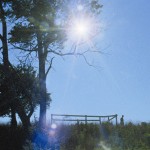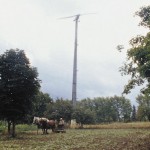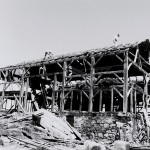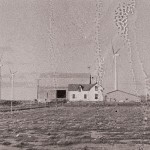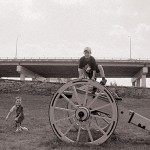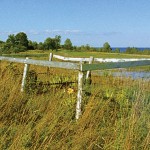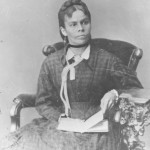All Fall Down curated by Adrian Kahgee & Debbie Ebanks Schlums at the Fabulous Festival of Fringe Film, 2018
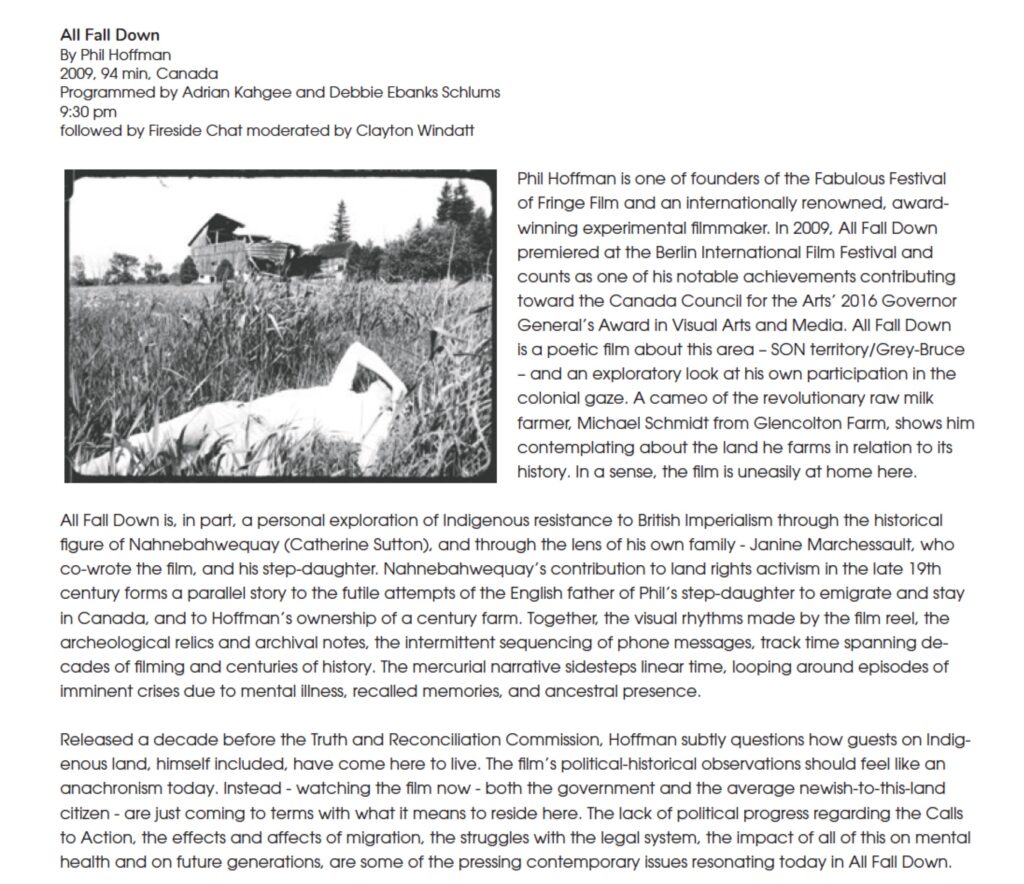
Scott MacKenzie on All Fall Down: “Barns, Britts and Birthrights” (POV) here
Review by Michael Sicinski (TIFF Notebook 2009)
Hoffman is a figure who’s too often taken for granted in the world of experimental film, greatly appreciated but not quite given his due. The best of his works — What These Ashes Wanted, ?O, Zoo! — employ a method of construction that seems at first to follow the darting patterns of immediate human thought. But over time, the visual sketchpad mode reveals itself to be something very different, a centripetal / centrifugal motion that Hoffman organizes around a few central ideas, always pulling the “digressions” back into the overall fold. All Fall Down is partly a family investigation, Hoffman trying to grapple with a past, which could hardly be nearer to him, but from which he is at the same time profoundly excluded. The primary subject is George Lachlan Brown, the father of Hoffman’s stepdaughter, a man whose disheveled, desperate existence unravels over the course of Hoffman’s film. Brown is present primarily through a series of answering machine messages, in which he negotiates with Hoffman’s partner Janine over parenting matters (emotional and legalistic), and in which he is calling out for help in rambling, self-absorbed monologues detailing his dire straits. As is always the case in Hoffman’s work, the incorporation of home movie and other visual textures — faded super-8; sumptuous, high contrast black and white; warm, rich Ektachrome passages — serves not only as a catalog of anterior moments but as a physical representation of the faculty of human memory, the variegated tenors and tonalities with which we choose to imbue the past. Hoffman’s plan is to concretize his act of memory by making it site-specific, excavating layers of history that have accrued at the 19th century farmhouse in Normanby Township, Ontario that was the locus of the personal material. This leads to recurring discussion of Victorian-era aboriginal land-rights activist Nahneebahweequa, which, strangely enough, often feels as though it is floating alongside the Brown content. Large unbroken passages of All Fall Down are devoted to articulating her story and the fraught political history surrounding her land claims. What Hoffman still doesn’t exactly do, except in wholly implicit ways, is articulate the Brown material with the surrounding / supporting ideas, although it’s clear that the negative space of the Southern Ontario landscape — that is, the strife its magnificence conceals — is the ostensible ground that holds All Fall Down together. While there is an occasional awkwardness in the film’s construction, largely due to Hoffman’s relative absence compared to his previous films (his “voice” is purely editorial and occasionally present as onscreen text; the spoken words are given to others), this is also indicative of Hoffman’s charge, to step back and learn about the very ground beneath him. – Michael Sicinski Notebook TIFF 2009 (read full post here)
Anamnesis by Attrition: Philip Hoffman’s All Fall Down by Tom Kohut
“In a film that consists as a series of displacements, its hard to know where to begin. It would be facile to suggest that time is spatialized (the characteristic of Jamesonian postmodernism) or, conversely, that space registers the vertical imprint of its diachonic totality (Derridean hauntology). But something very like that happens in Philip Hoffman’s All Fall Down (2009). So one has to be careful here – the lives of actual people, and their deaths, are at stake here.” (read more)
Stills
All Fall Down Press Kit (PDF)
“The paintings and writings of Homer Watson and Paul Kane are featured and explored in the film, along with writers George Orwell and Wallace Stevens. Contemporary figures such as organic farmer and raw milk advocater Michael Schmidt also appears in the film. Composers Toni Edelmann and Tucker Zimmerman have created the music for the film and the film was co-written with Janine Marchessault.”
Description: All Fall Down is an experimental documentary that takes as its starting point a nineteenth century farmhouse in Southern Ontario, Canada, and asks the question “what has been here before?”
The film weaves together a complex temporal structure that juxtaposes the lives of two figures, one historical (Nahneebahweequa: a nineteenth century aboriginal woman and land rights activist) and the other contemporary (an ex-pat drifter and father of the filmmaker’s step daughter) across two hundred years.
The film explores these characters through a variety of archival materials: diaries, landscape paintings, photographs, heritage films, poems, phone messages, maps, historical reenactments, songs) that express the complexity of time and the politics of land. The film is structured through Hoffman’s extraordinary landscapes of Southern Ontario which make the temporal fabric shimmer, bringing us a meditation on childhood, property, colonialism, ecology, and love.
More Screenings and Reviews
Canadian Film Institute
Special Presentations: ALL FALL DOWN
Auditorium, Library and Archives Canada
“One of Canada’s pre-eminent experimental filmmakers and a pioneer of the diary film, Philip Hoffman has been working and teaching in sound and images for over 30 years. ALL FALL DOWN, Hoffman’s first feature length film, is in some ways the culmination of his ongoing formal and thematic concerns related to history, family and memory. The film weaves together a diverse array of material in its memory work: archival documents, diaries, landscape photography, family photo albums, heritage films, poems, cartography, and the interstitial moments that linger in the in-between. In asking the question, “What has been here before?,” the film“ weaves together a complex temporal structure that juxtaposes the lives of two figures, one historical (Nahneebahweequa: a nineteenth-century aboriginal woman and land-rights activist) and the other contemporary (an ex-pat drifter and father of the filmmaker’s step-daughter), across 200 years.”
A sensitive and probing first person perspective travels over and within the images, linking the fates of farms in Southern Ontario to far-reaching issues related to Canada’s colonial history. Reminiscent of the genre-bending essay films of world cinema giants Jean-Luc Godard and Chris Marker, ALL FALL DOWN is an emotionally moving and thought-provoking cinematic excursion into the archaeologies of memory and place: the place of memory in the contemporary world. Must-see cinema.” – Tom McSorley
BUENOS AIRES FESTIVAL INTERNACIONAL de CINE INDEPENDIENTE (BAFICI) (read here)
“The fact that All Fall Down is a film in which the theme and central question is how to build a film character might be the reason for this story about writer George Lachlan Brown being so fascinating. Philip Hoffmann had endless answers for that question, but he understood his character didn’t fit in the usual systems of society, which would demand an approach that would not just settle with first person storytelling or archive footage, but would tear down those barriers and pose a perspective that –as critic Michael Sicinski said – oscillates between the intimate and the distant. As it occurs with powerful films, it’s hard to define its most relevant topic: family and loneliness, imagination and reality, Art and everyday life, the local and the global, the time’s passing and weight, comedy and tragedy. It’s hard to ask this unforgettable film for more.”
BERLIN INTERNATIONAL FILM FESTIVAL
Dialogue with Films – Four Decades of the Forum
Philip Hoffman’s latest production, All Fall Down (2009, HDV) screens as part of the Berlinale’s Forum Expanded program, a series exploring traditional image formats in the digital age. (read here)
The feature-length film is an experimental documentary that juxtaposes the lives of two people separated by a century but linked by a farm house in Southern Ontario. It explores the characters through a variety of archival materials: diaries, landscape paintings, photographs, heritage films, poems, phone messages, maps, historical reenactments and songs that express the complexity of time and the politics of land.
WNDX: WINNIPEG’S FESTIVAL OF FILM AND VIDEO ART Hailing Hoffman: Legendary experimental filmmaker a focus of local WNDX Festival (read here)
“Philip Hoffman, one of Canada’s most critically respected filmmakers, is coming to Winnipeg to attend a retrospective of his short works and a screening of his first feature. Known for his distinctly personal approach, Hoffman has made over 18 short films, has had more than a dozen retrospectives of his work across the world, teaches film production at York University and is the founder of the Film Farm, an experimental filmmakers retreat. He will be screening his new film, All Fall Down, which recently premiered at the Toronto International Film Festival to terrific reviews, at WNDX (Winnipeg’s festival of film and video art) this week.” by Ryan Simmons
